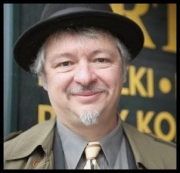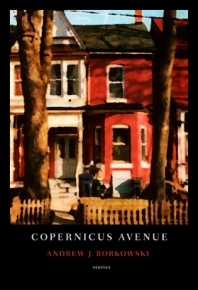 What do authors think about editors? What do authors think makes the difference between a good editor and a great editor?
What do authors think about editors? What do authors think makes the difference between a good editor and a great editor?
In January, BoldFace asked author Andrew Pyper about his experience working with editors. This time we posed the same questions to Andrew J. Borkowski, a Toronto-based writer, editor, journalist, musician, and author of the short story collection Copernicus Avenue, which won the 2012 Toronto Book Award.
Q&A conducted by Jennifer D. Foster
Overall, what’s been your experience as an author who’s been edited?

Extremely positive. The editors and readers I’ve had at publishers, literary magazines, and agencies have been as diligent, thoughtful, and as committed to the craft as I expect myself to be.
What is it like as an author to work months, or even years, on a book and to then have an editor read it critically and suggest (sometimes major) changes?
Having worked as an editor for many years before my first book was published, I tend to be a pretty ruthless editor of my own work, at least when it comes to working the surface of the prose. That said, I go into the process hungry to know what rings true in my work and what doesn’t.
What do you think is the formula for a positive author/editor relationship?
Respect on both sides—for one another, and above all for the work. A good editor sets aside her or his own prejudices and tries to take the measure of where the work needs to go on its own terms. A danger for some editors is that they become so accustomed to editing work that’s either written to a template or written by people for whom craft is not necessarily a priority that they go into a considered literary work thinking they have license to reshape the book from the ground up. I’ve never had to work with an editor like this, but I’ve done enough editing to see how it can be an occupational hazard. But a good editor, one who has that respect for the work, is the best friend a writer can have. An honest professional opinion is worth its weight in gold in publishing, and the best writers know that.
What’s your advice for a writer working with an editor for the first time?
Don’t feel you have to respond immediately to an editor’s comments or criticisms. After a first conference or a read of the first markup, I find it’s best to take most things under advisement, go away for a few days, ruminate, gestate, get past whatever kneejerk response you may have to criticisms that sting a bit. Then be ready to be honest with yourself. Beware your own rationalizations for the choices you’ve made. Sometimes we try to be too clever by half, and a good editor can puncture those balloons. Ask yourself whether or not your editor’s analysis rings true. Does it resonate on a gut level with any concerns you have, particularly concerns you’ve been trying to suppress? And don’t necessarily accept an editor’s suggestions carte blanche. Sometimes an editor’s fix can be absolutely wrong, but it forces you to acknowledge a problem that, more often than not, you’ve guessed at yourself, and it causes you to think more deeply for the fix that’s absolutely right. Once you’ve been completely honest with yourself, don’t be afraid to stick to your guns if you disagree—just be sure you’ve got a sound argument for your position.
What are the characteristics of a good editor? And a great one?
A good editor has a great ear for style and knows how to be specific and constructive in their feedback. A great editor thinks and intuits deeply into a work, tries to experience what the work itself is trying to achieve, and puts all his or her skill into seeing that that end is served.
Jennifer D. Foster is a Toronto-based freelance writer and editor, specializing in fiction/non-fiction, custom publishing, magazines, and marketing and communications.

One thought on “Q&A: Author Andrew J. Borkowski on the author/editor relationship”